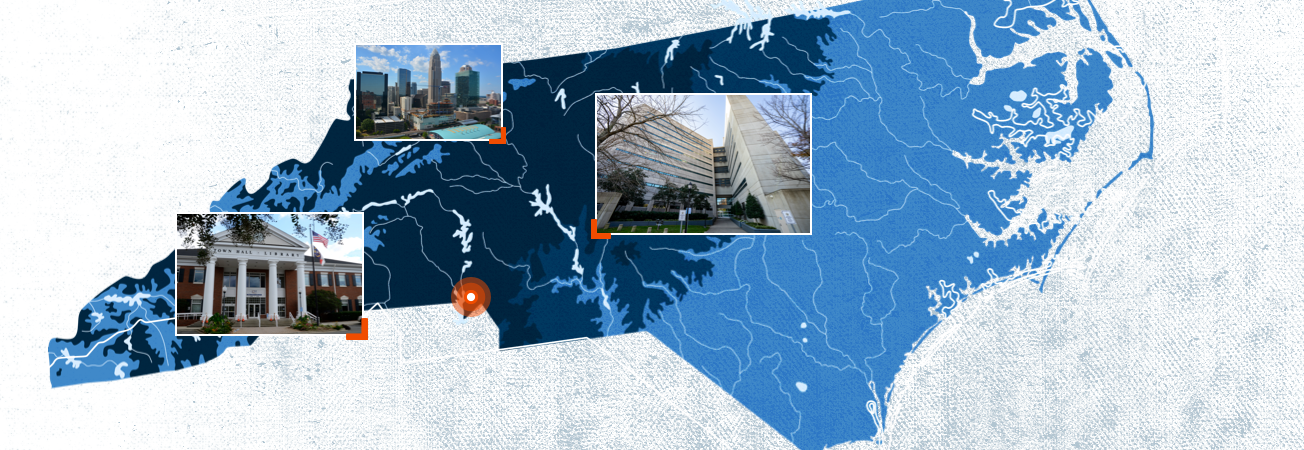Background
Prior to joining the Safety and Justice Challenge, Mecklenburg County had successfully implemented several evidence-based practices to improve its justice system, such as using risk to inform the setting of release condition decisions, rather than relying on charge. This resulted in a significant jail population reduction, however there was still an unnecessary use of the local jail.
Too often, a jail stay depended on a person’s ability to pay money bail. Although the county increased the use of non-financial release conditions, jail stays still too often depended on a person’s ability to pay.
Pretrial status inmates and length of stay were main drivers of the jail population. In 2019, the pretrial jail population was 63% of the total average daily population.
People of color were overrepresented in the jail. In 2019, despite making up approximately 46% of the local population, Black and Hispanic people made up 78% of the jail population.

